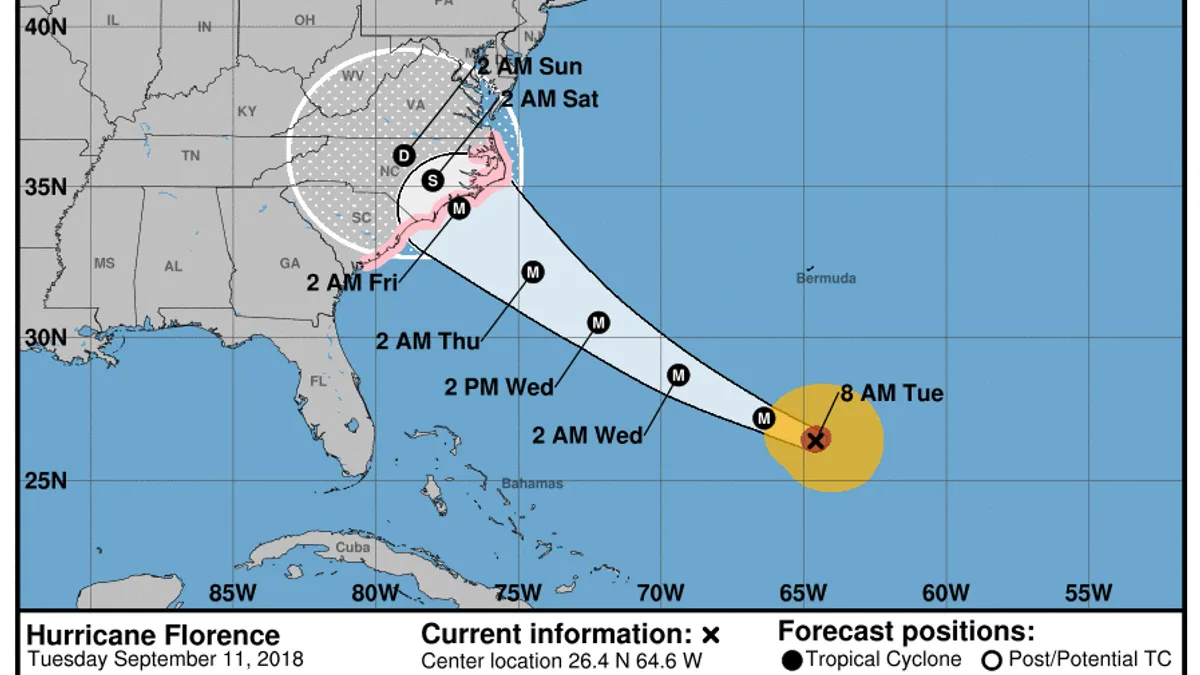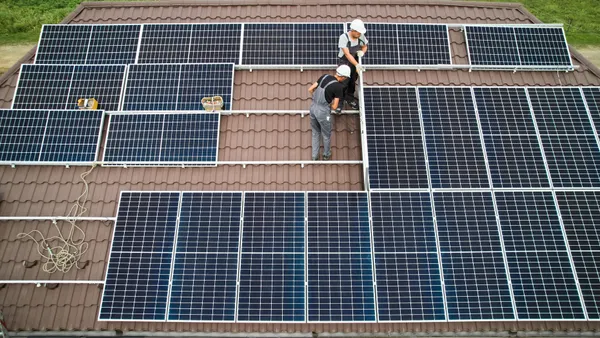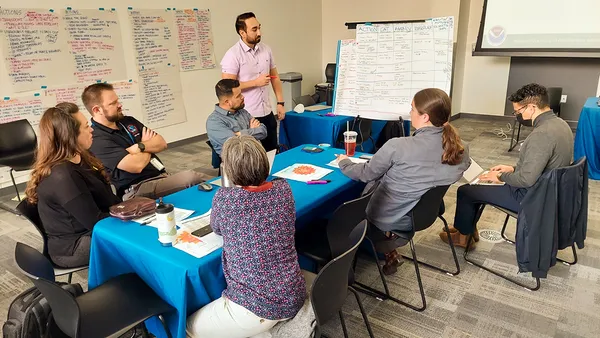Dive Brief:
- Scientists say signals from 5G networks could hinder accurate hurricane tracking predictions, according to reports from CBS and Bloomberg.
- Satellites rely on natural signals from water vapor to predict a hurricane's likely path. Interference from 5G networks could lead to a 30% drop in accuracy, said Neil Jacobs, assistant secretary of commerce at the National Oceanic and Atmospheric Administration (NOAA), during a House subcommittee hearing in May.
- This year, the Federal Communications Commission (FCC) plans to sell rights to three 5G airwaves. Two sold at auction earlier this year, with one pulling in $2 billion in bids.
Dive Insight:
On one side of this high-stakes issue is the FCC, which is pushing the sale of 5G spectrum to advance communications. On the other is the Department of Commerce, which oversees the NOAA and is erring on the side of caution.
Cities are caught in the middle.
In connected areas, 5G technology can benefit first responders once disaster occurs. Evacuation plans and other emergency protocols need advance notification to give cities and states time to prepare. But inaccurate tracking data could cost cities precious time in preparations, especially when they deal with hurricanes or wildfires.
Resolution of this issue is at a stalemate.
The FCC is a strong proponent of swift 5G deployment in a bid to stake out U.S. leadership in the technology and has allies in mobile tech companies which are investing almost $300 billion in 5G's future.
NOAA, however, paints a gloomy picture. Factoring 5G interference into Hurricane Sandy tracking data could have led forecasters to predict the wrong path and in a not too timely fashion.
The human toll and property damage as the result of an inaccurate prediction could be devastating. The Congressional Budget Office predicts economic losses due to natural disasters at about $54 billion annually in the U.S.
The question now centers on if the FCC is able to walk back on or restructure deals with mobile companies which have purchased 5G rights and are proceeding with building out the technology — or if they're willing to consider that at all.












